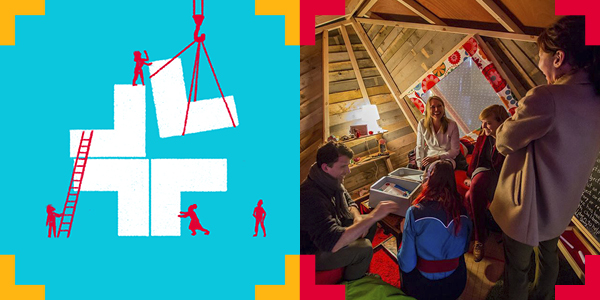The Brigstow Institute brings people together to undertake new experimental inter-disciplinary and co-produced research projects and partnerships exploring what it means to live well in the 21st century.
Dr William Wootten is principal investigator on a project called 'Metre and Memorisation', which will investigate the psychological effects, and possible benefits, of verse memorisation; the co-investigators on the project, Dr Nina Kazanina and Professor Christopher Jarrold, both work in the Psychology Department at the University of Bristol. The team and a Research Assistant will be conducting a series of what should be enjoyable experiments with volunteers on Zoom and organising a poetry recitation contest for schools. It is hoped that the results of the research will be significant both for a little studied area of English and Psychology and for their educational and health implications. The project and our research questions developed out of Dr Wootten's recent work on Walter de la Mare and I.A. Richards; his knowledge and experience as a poet and critic supply the literary component to what is a genuinely interdisciplinary project.
Dr Kirk Sides will bring his expertise in the environmental humanities to a project entitled 'Temperature Life Stories: Feeling the Heat'. Kirk's role will be in the creation of workshops that employ narrative and storytelling methodologies and allow participants to capture thier experiences of climate change and the effects to their local environments. He will also be involved in producing a series of collaborative outputs with the team, as well as a 'toolkit' for other researchers to employ similar Humanities-based methods for approaching climate change research. The outputs and toolkits are scheduled to be released ahead of the COP26 United Nations Climate Change Conference. Kirk will be working alongside Dr Alan Kennedy-Asser (Geographical Sciences), Dr Clifton Evers (Newcastle University), Ellie Shipman (Artist and Illustrator) Karen MacDonald (Bristol Museums), and Sarah Mountford (Windmill Hill City Farm), as well as the Bristol City Poet (and former Department of English undergraduate) Caleb Parkin.
Dr Laurence Publicover will be working on a project entitled 'Hamlet and the Red Dragon', which will explore the circumstances surrounding the possible performance of Shakespeare's tragedy off the coast of Sierra Leone in 1607, during what would become the first English voyage to reach India. Initiated by Bristol-based theatre director Ben Prusiner, the project aims to devise a performance based around these events to be staged in the summer of 2022 at various venues, including on board ships; seedcorn funds from the Brigstow Institute will go towards workshops during 2021 involving the playwright Rex Obano and other collaborators with expertise on the history and performance culture of Sierra Leone and of India. Dr Publicover will bring to the project his dual interests in Shakespeare and in oceanic history; he has an edited collection forthcoming from Palgrave Macmillan that explores reading, writing, and performing at sea.
These departmental successes follow an earlier award in November 2020 to Dr Lesel Dawson for her project 'Creative Grieving', which explores the therapeutic potential of creativity and demonstrates the different ways that art and the imagination can enable the bereaved to express and process their loss. The project grows out of a previous collaboration between Dr Dawson and Dr Jimmy Hay (Department of Film and Television) which fed into Good Grief: A Festival of Love and Loss, an online festival funded by the Wellcome Trust. ‘Creative Grieving’ will draw on insights from psychotherapists, bereavement councillors, and art therapists as well as artists, photographers, directors and writers who have turned to creative projects as a means of expressing and processing their grief. The project will have traditional research components and practice-as-research components, and the research and creative outputs will be disseminated on the Grief Channel, an online public engagement forum that has been set up following Good Grief Festival.
Click to listen to a podcast of these four colleagues from the English Department discussing their research.
